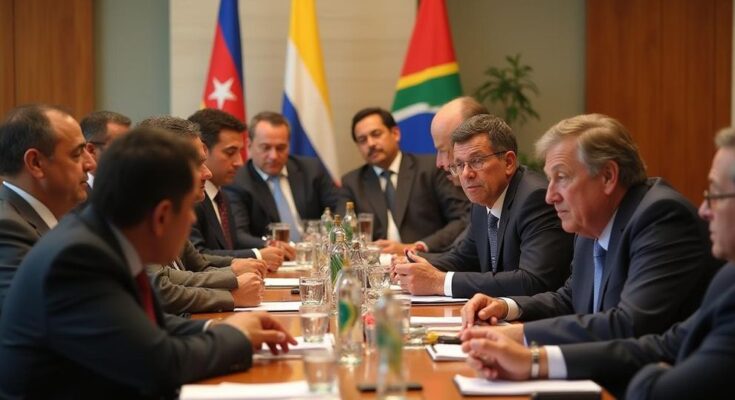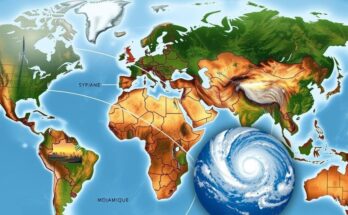Namibia and South Africa’s foreign ministers convened in Swakopmund to express support for Cuba and Venezuela against U.S. sanctions, condemned Israel’s actions in Lebanon, called for the removal of sanctions against Zimbabwe, and discussed the Western Sahara issue, focusing on self-determination rights.
On October 14 and 15, a significant event took place in Swakopmund, Namibia, led by the Foreign Ministers of Namibia, Mr. Peya Mushelenga, and South Africa, Mr. Ronald Ozzy Lamola. During this ministerial meeting, both leaders affirmed their unwavering support for the nations of Cuba and Venezuela, which are currently grappling with profound economic challenges, largely attributed to unilateral sanctions. The ministers specifically highlighted the extensive economic, financial, and commercial blockade imposed on Cuba, advocating for the cessation of this longstanding U.S. policy that has persisted for over six decades. Additionally, the meeting voiced strong condemnation regarding Israel’s military actions in Lebanon, labeling these actions as serious breaches of both sovereignty and international humanitarian law. They urged the international community, alongside the United Nations Security Council, to enforce international law more vigorously. Moreover, the discussion addressed the pressing issue of sanctions on Zimbabwe, whereby both nations called for the immediate and unconditional removal of these sanctions, emphasizing their adverse effects on the socioeconomic development of Zimbabwe and the broader Southern African region. Participants also engaged in dialogue regarding the situation in Western Sahara. They expressed support for a recent ruling by the Court of Justice of the European Union (CJEU) on October 4, 2024, which determined that the European Commission had violated the self-determination rights of the Western Sahara people.
This article sheds light on a recent meeting between Namibia and South Africa’s foreign ministers, focusing on their solidarity with Cuba and Venezuela amidst economic crises exacerbated by U.S. sanctions. It also touches on broader geopolitical issues including the situation in Zimbabwe and Western Sahara, reflecting a staunch position on international law and human rights advocacy.
In conclusion, the meeting between the foreign ministers of Namibia and South Africa served to reinforce their commitment to supporting Cuba and Venezuela in the face of longstanding economic sanctions. Additionally, their advocacy for human rights in the context of the Israeli-Lebanese conflict, the removal of sanctions against Zimbabwe, and support for the self-determination of Western Sahara further illustrates their diplomatic priorities within the international arena.
Original Source: www.plenglish.com




